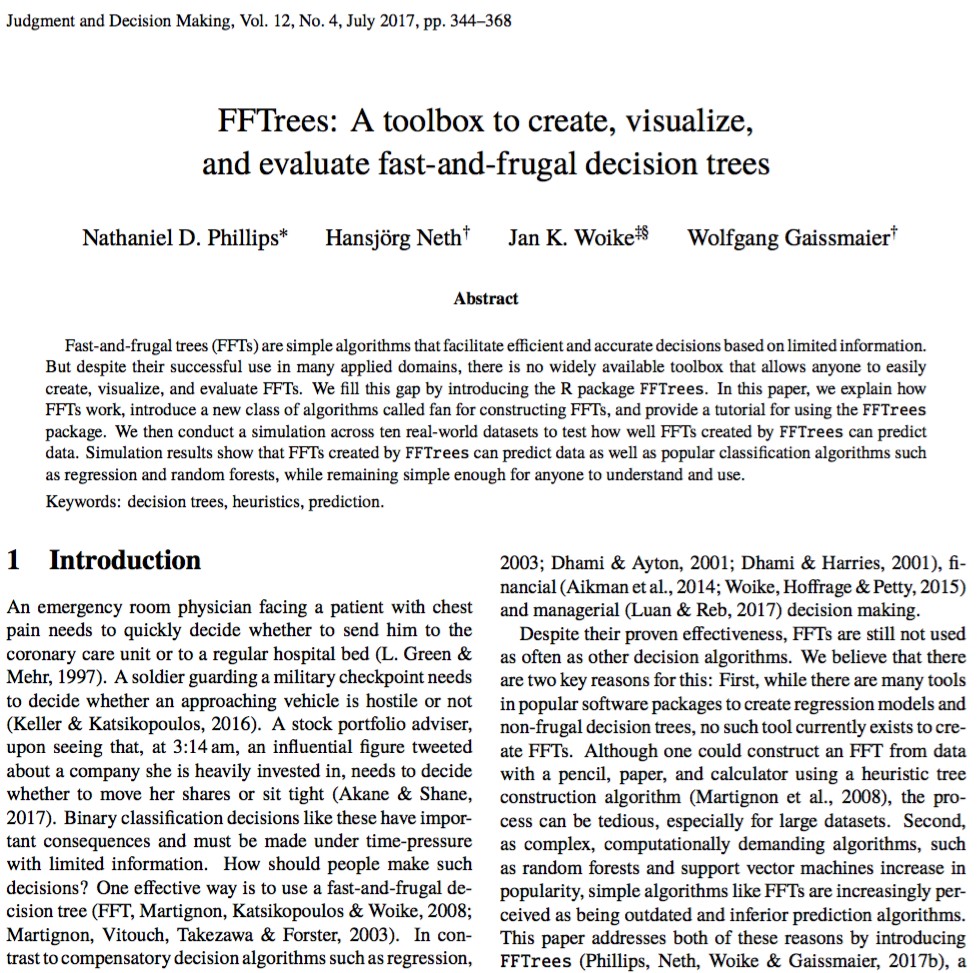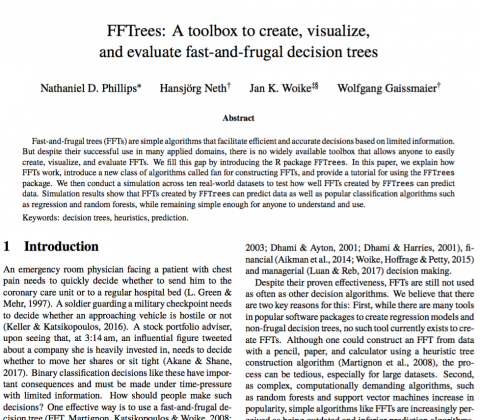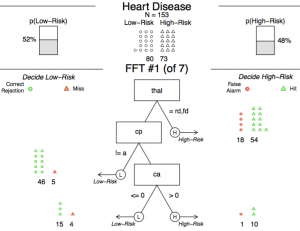

Paper: FFTrees: An R toolbox to create, visualize, and evaluate FFTs
is nevertheless totally incomprehensible to a human expert, can it
be described as knowledge? Under the common-sense definition of this term
as material that might be assimilated and used by human beings, it is not…
Nathaniel Phillips, Hansjörg Neth, Jan Woike, Wolfgang Gaissmaier
FFTrees: A toolbox to create, visualize, and evaluate fast-and-frugal decision trees

An example of an FFT predicting the risk of having heart disease.
Abstract: Fast-and-frugal trees (FFTs) are simple algorithms that facilitate efficient and accurate decisions based on limited information. But despite their successful use in many applied domains, there is no widely available toolbox that allows anyone to easily create, visualize, and evaluate FFTs. We fill this gap by introducing the R package FFTrees. In this paper, we explain how FFTs work, introduce a new class of algorithms called fan for constructing FFTs, and provide a tutorial for using the FFTrees package. We then conduct a simulation across ten real-world datasets to test how well FFTs created by FFTrees can predict data. Simulation results show that FFTs created by FFTrees can predict data as well as popular classification algorithms such as regression and random forests, while remaining simple enough for anyone to understand and use.
Summary: Fast-and-frugal trees (FFTs) are simple algorithms for binary classification decisions. We introduce the R package FFTrees, which predicts data as well as more complex classification algorithms, while remaining simple enough for anyone to understand and use.
Keywords: Fast-and-frugal decision trees, simple heuristics, classification, prediction.
Reference: Phillips, N. D., Neth, H., Woike, J. K. & Gaissmaier, W. (2017). FFTrees: A toolbox to create, visualize, and evaluate fast-and-frugal decision trees. Judgment and Decision Making, 12 (4), 344–368.
Related: Heuristics: Tools for uncertainty | Homo heuristicus in the financial world | Rational task analysis (RTA)

The R package FFTrees makes it easy to construct, evaluate, and visualize FFTs.
Resources:
- Journal article: PDF | html | Google Scholar
- Grow your own FFTs with the R package FFTrees (on CRAN) or Shiny FFTrees
- Supplementary material is available at the Open Science Foundation
- Nathaniel’s latest blog post on FFTrees, his 2016 post, and a YouTube tutorial explain the motivations behind FFTrees.
Comments are Disabled